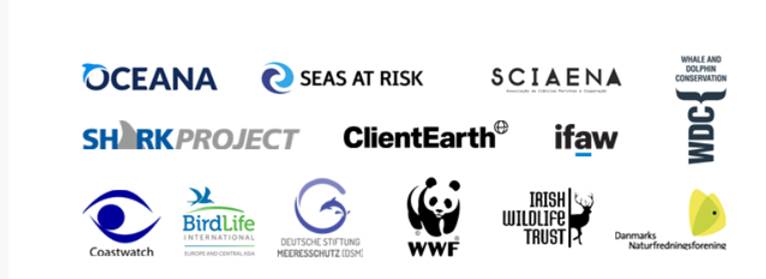
Today, the European Commission presented its legislative proposal on nature restoration, a new law with binding targets to restore degraded land and marine ecosystems across the EU. This is a major milestone to tackle the current biodiversity and climate crises and restore a healthy relationship between people and nature. We welcome the long-awaited publication of this proposal, which shows the European Commission’s commitment to its EU Green Deal and Biodiversity Strategy.
The restoration law can be a gamechanger to turn the tide for endangered marine ecosystems and species, which are under increasing pressure in Europe. However, some flaws in the proposal need to be addressed – otherwise it is set to fail in the marine environment, say marine NGOs. The restoration law must particularly address the shortcomings in the implementation of the Common Fisheries Policy, which so far has not succeeded in tackling the damaging impacts of fishing as required under EU environmental laws. NGOs urge EU co-legislators to ensure that fisheries, the biggest driver of biodiversity loss in our ocean1, are effectively managed to deliver ocean restoration targets.
Vera Coelho, Oceana’s Senior Director, Advocacy in Europe: “Everyone recognizes the current approach to manage fisheries for nature conservation is defective and absurdly long, as it can take several years per area and enables EU Member States to block the adoption of meaningful measures. The European Commission’s proposal fails to properly address the elephant in the room, by not tackling the largest hurdle to ocean restoration – fisheries”.
“Ocean restoration must be coupled with strict protection to be effective”, said Marc-Philip Buckhout, Marine Policy Officer, Seas At Risk, “Restoring degraded seagrass meadows play a vital role in both mitigating climate change and reversing biodiversity loss. However, there is no point restoring on the one hand, while bottom dredging through them and around them. We need to put in place strict protection measures to prevent these key areas from being destroyed by harmful human activities.”
John Condon, Wildlife and Habitats lawyer at ClientEarth: “If done right, this law is a win-win for nature and our fishing communities, because meaningful marine recovery also means replenishing our fish stocks for a more abundant ocean. The Council and the European Parliament have a duty to make that future possible by ensuring that destructive fishing for short-term gains does not jeopardise marine restoration and the viability of the fishing communities in the long run.”
The legislative proposal requires Member States to detail in their national restoration plans the fisheries measures they intend to adopt under the Common Fisheries Policy, but it fails to include a safeguard mechanism to overcome eventual deadlocks among Member States, in order to ensure marine restoration happens by 2030.
The proposal will now be negotiated by the Council and the European Parliament, and NGOs urge them to step up their ambition to live up to the environmental crises of restoring nature and the ocean. We call on both institutions to particularly tackle unsustainable fishing, which is incompatible with restoration and which the European Commission did not properly address in its proposal.





